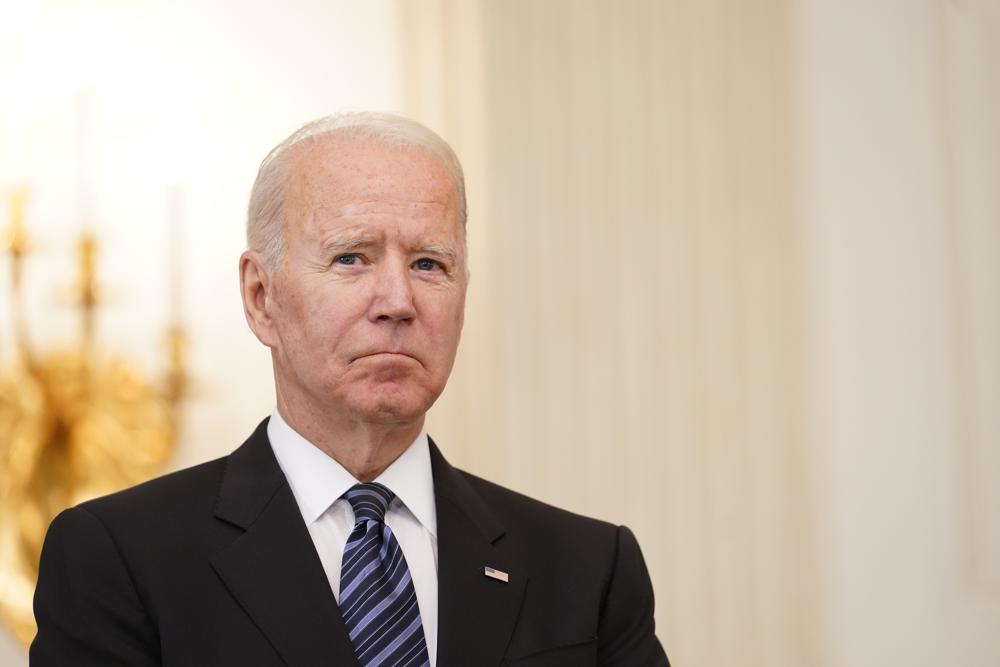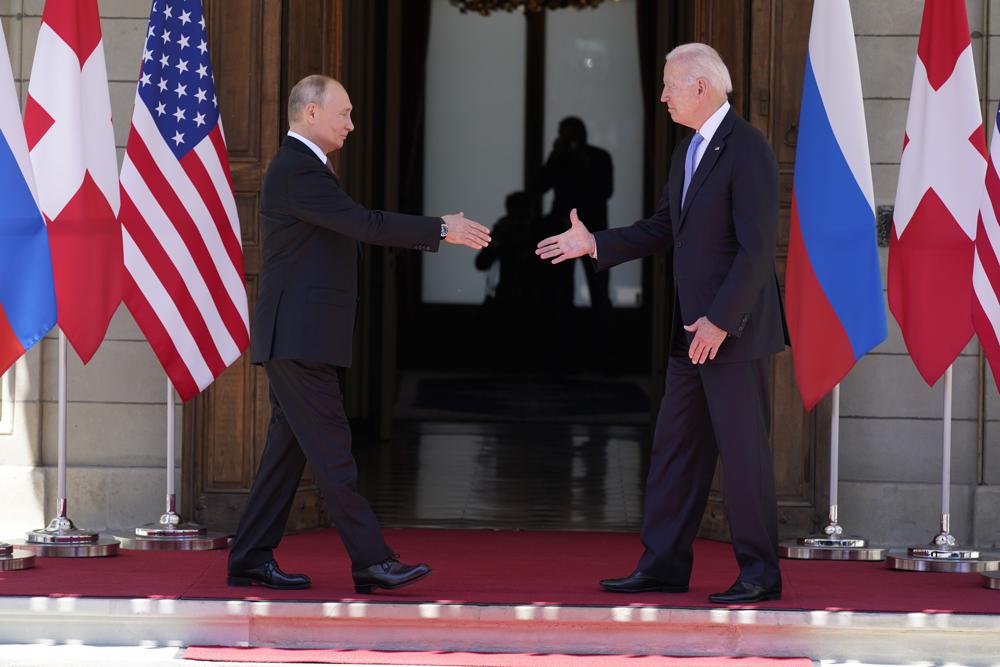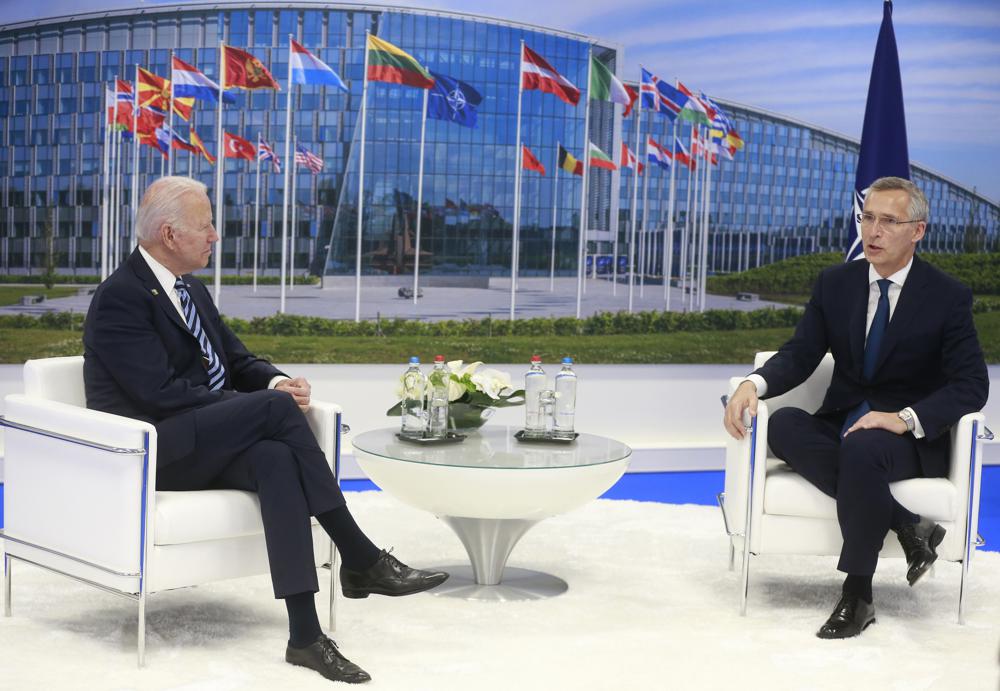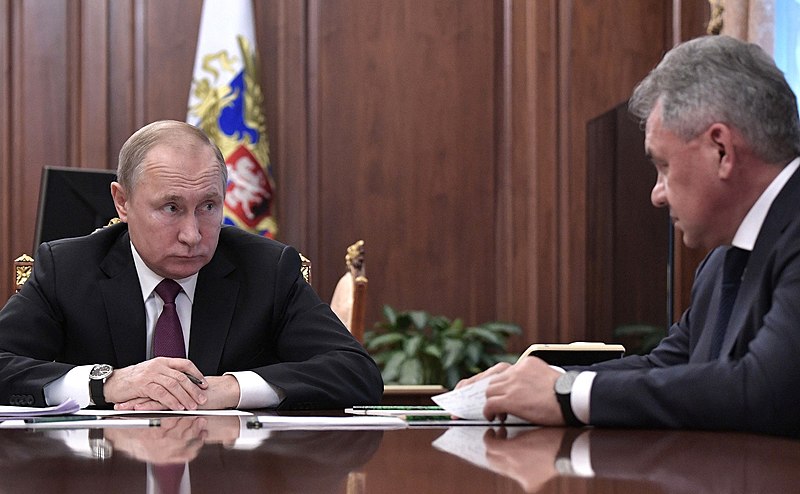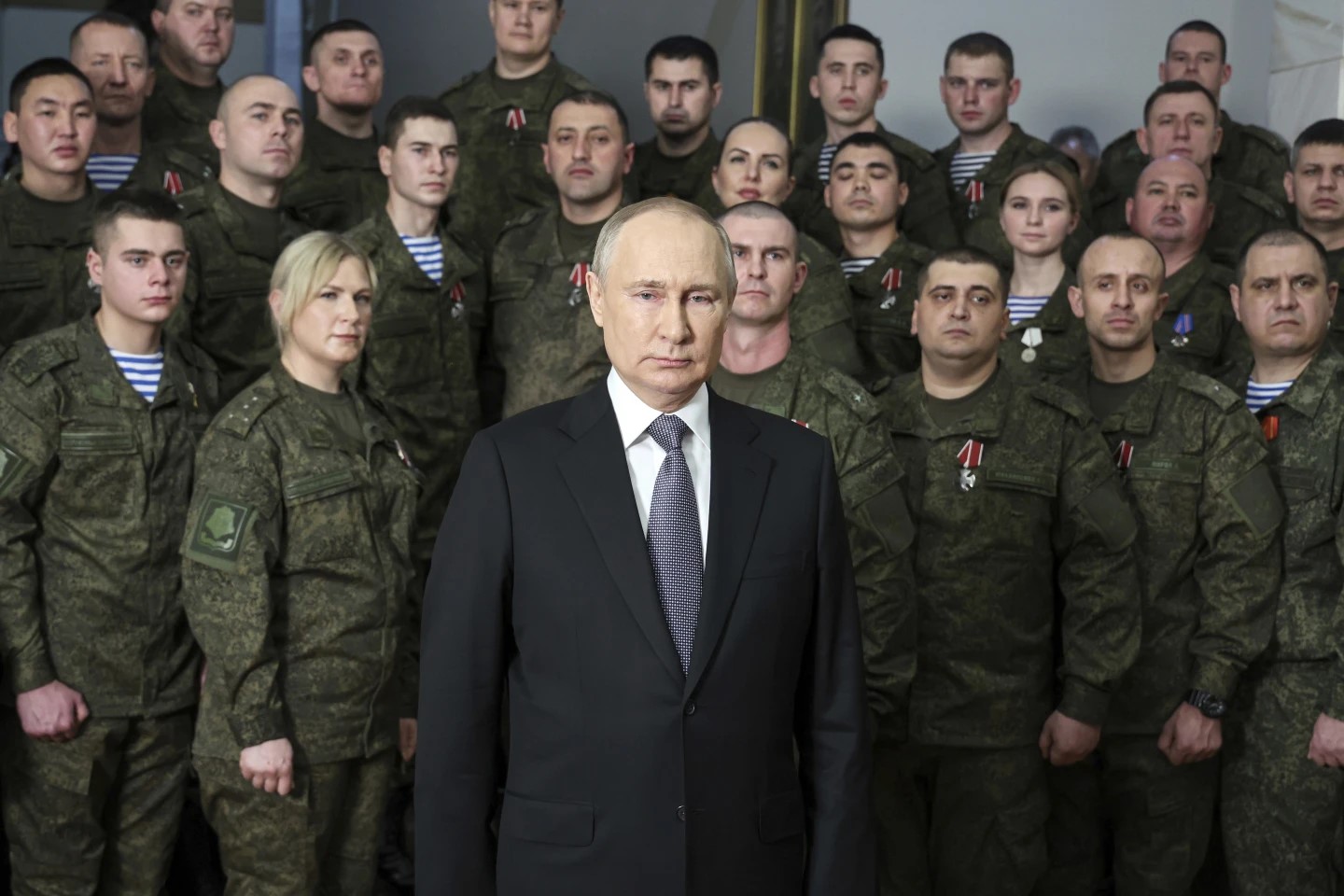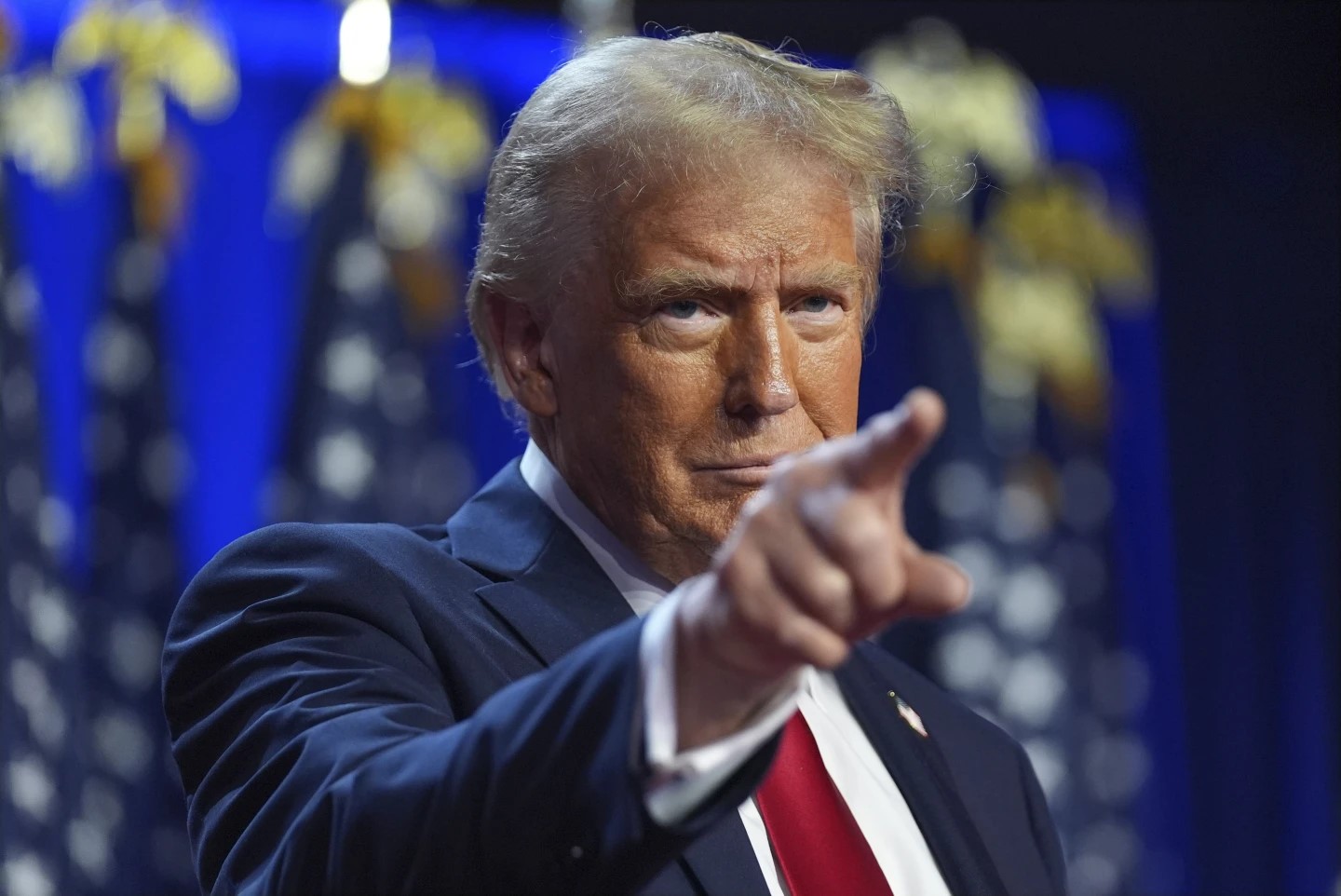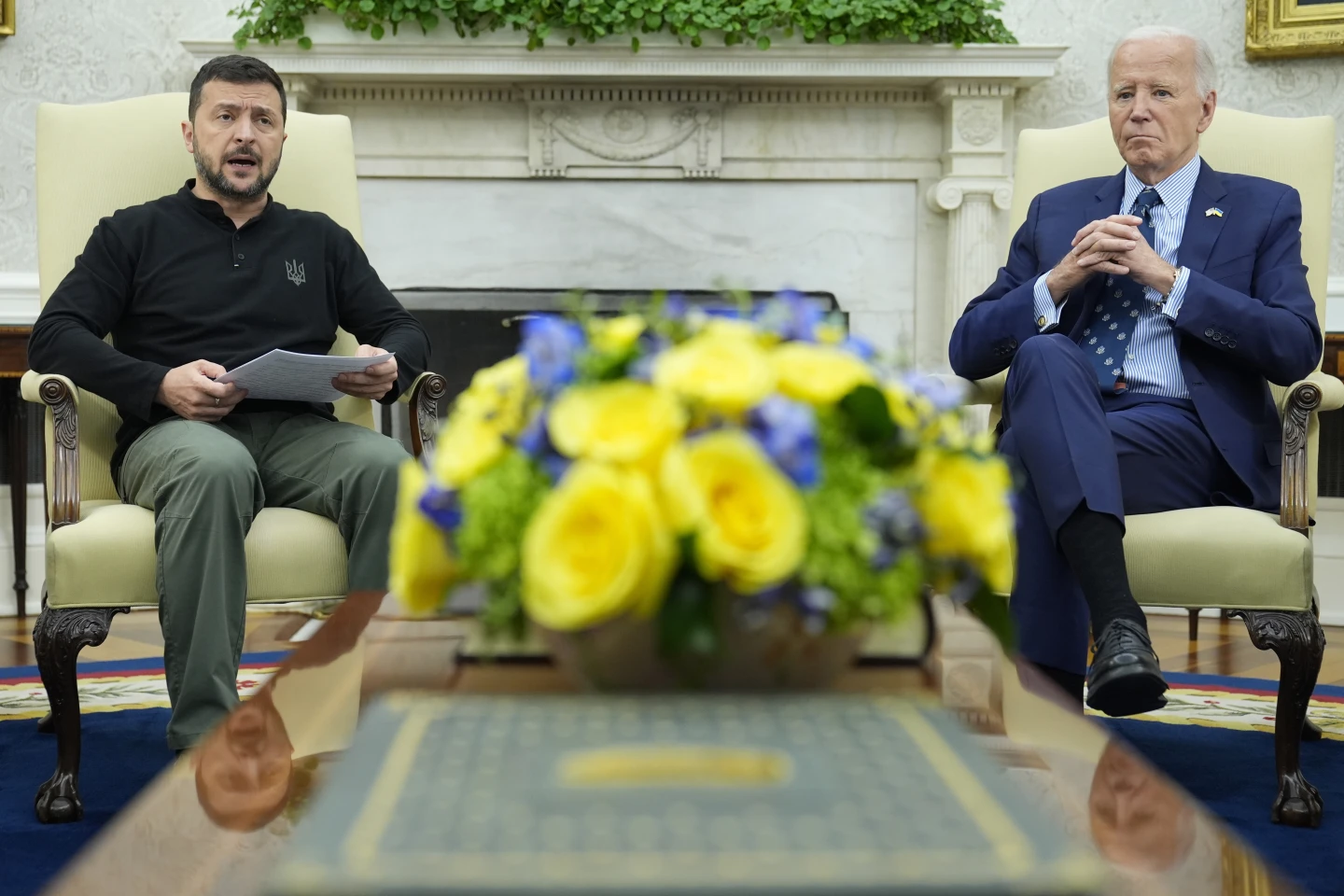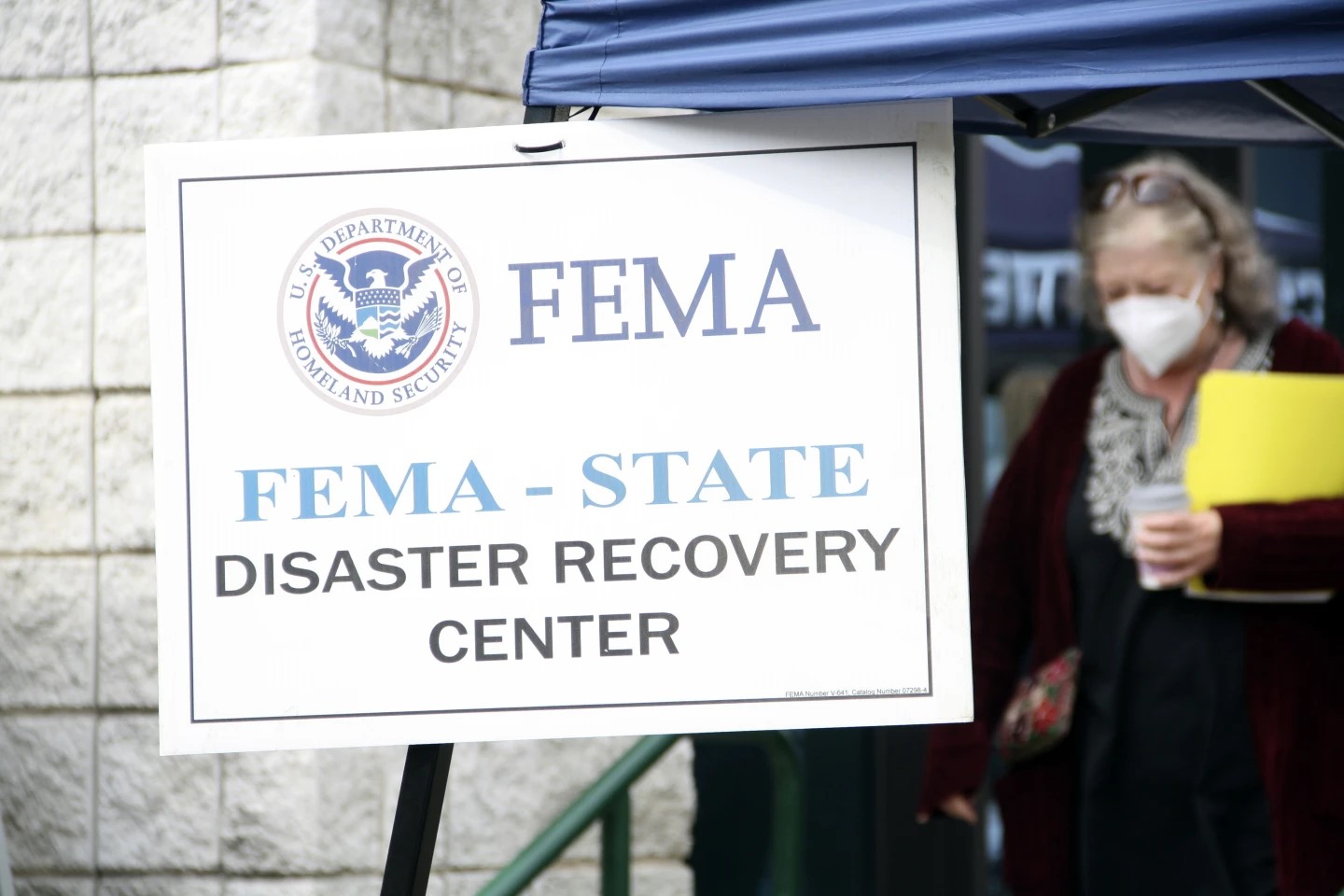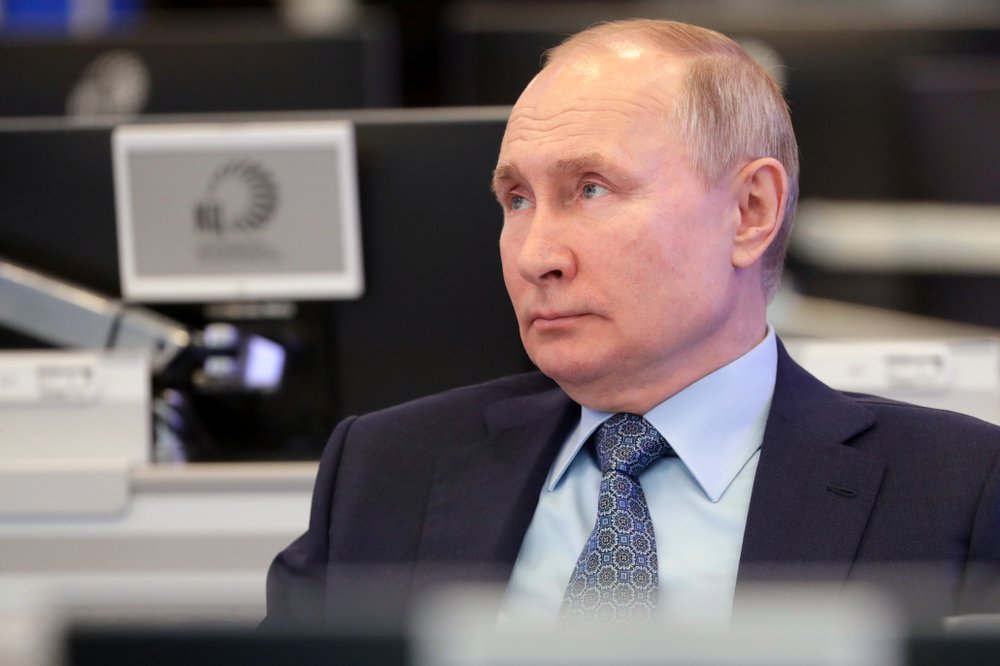Written by DARIA LITVINOVA and VLADIMIR ISACHENKOV
Russian President Vladimir Putin said Wednesday that a U.S. reconnaissance aircraft was operating in sync with a British destroyer last week when the ship sailed through the Black Sea in what he described as a “provocation” to test Moscow’s response.
Moscow said one of its warships fired warning shots and a warplane dropped bombs in the path of Britain’s Defender on June 23 to force it from an area near Crimea that Moscow claims as its territorial waters. Britain insisted its ship wasn’t fired upon and said it was sailing in Ukrainian waters.
The episode was the latest to raise tensions between Russia and the West since Russia’s annexation of Ukraine’s Crimean Peninsula in 2014, a move not recognized by most countries but one that gives it access to a long Black Sea coast.
The U.S. Defense Department had no immediate comment Wednesday on Putin’s claim that one of its aircraft was with the British ship last week.
Asked if the events could have triggered World War III, Putin responded that the West wouldn’t risk a full-scale conflict.
“Even if we sank that ship, it wouldn’t put the world on the brink of World War III because those who do it know that they can’t emerge as winners in that war, and it’s very important,” Putin said during his annual live call-in show when Russians ask him questions.
Russian officials have warned that if a Western warship enters the waters again, the military could fire to hit. Since it annexed Crimea, Russia has chafed at NATO warships visiting the area as destabilizing.
Britain has insisted the Defender was making a routine journey through an internationally recognized travel lane and remained in Ukrainian waters. The U.K., like most of the world, recognizes Crimea as part of Ukraine despite the peninsula’s annexation by Russia.
Putin charged that the U.S. aircraft’s apparent mission was to monitor the Russian military’s response to the British destroyer.
“It was clearly a provocation, a complex one involving not only the British but also the Americans,” he said, adding that Moscow was aware of the U.S. intentions and responded accordingly to avoid revealing sensitive data.
The Russian leader lamented that the move closely followed his summit with U.S. President Joe Biden in Geneva earlier this month. “Why would they make such provocations?” he said.
Putin insisted that Russia would firmly defend its territory.
“We are fighting for ourselves and our future on our own territory,” he said. “It’s not us who traveled thousands of kilometers (miles) to come to them, it’s them who have come to our borders and violated our territorial waters.”
Putin emphasized that Moscow is concerned about NATO troops coming to Ukraine for training, reaffirming that a permanent Western military presence on the Ukrainian territory would challenge Russia’s vital interests and represent a red line.
He also reiterated, as he often does, that there is a close kinship between the Russian and Ukrainian peoples, but accused the Ukrainian leadership of being hostile towards Russia. Putin expressed doubt about the value of a meeting with Ukrainian President Volodymyr Zelenskyy, describing him as a Western pawn.
“Why meet Zelenskyy if he has put his country under full foreign control and key issues for Ukraine are decided not in Kyiv but in Washington, and, to a certain extent, Paris and Berlin?” Putin asked.
Earlier this year, Russia beefed up its forces near Ukraine and warned Kyiv that it could intervene if they tried to use force to reclaim the areas in the east controlled by Russia-backed separatists since conflict there erupted in 2014. Moscow later pulled back some of its troops, but the Ukrainian authorities said that the bulk of them have remained close to the border.
The Russian president spent most of the four-hour marathon call-in show speaking about domestic issues — as is typical for the tightly choreographed annual rite that helps Putin polish the image of a strong leader caring for people’s needs. It didn’t feature any questions about Russia’s beleaguered opposition and the most prominent of Putin’s political foes, Alexei Navalny, who is in prison.
He voiced hope that the country could avoid a nationwide lockdown amid a surge of new infections. Coronavirus deaths in Russia hit a new daily record Wednesday, with the authorities reporting 669, but Putin argued that decisions by local authorities in a number of regions who made vaccination mandatory for some workers should help contain the new wave.
Russia has been registering over 20,000 new coronavirus cases and around 600 deaths every day since last Thursday.
Russian officials have blamed the surge, which started in early June, on Russians’ lax attitude toward taking necessary precautions, the growing prevalence of more infectious variants and low vaccine uptake, which experts attribute to widespread vaccine hesitancy and limited production capacity. Although Russia was among the first countries to announce and deploy a coronavirus vaccine, just over 15% of the population has received at least one shot.
Amid this hesitancy, Putin revealed that he chose the domestically developed Sputnik V for his vaccination. Putin got his first coronavirus shot in late March out of the public eye and has remained tight-lipped about which vaccine out of three developed in Russia that were available at the time he chose.
Amid the surge, about 20 Russian regions — from Moscow and St. Petersburg to the remote far-eastern region of Sakhalin — have made vaccinations mandatory this month for employees in certain sectors.
Turning to other issues, Putin said the Russian authorities have no intention of banning Western social media platforms but emphasized that the government merely wants them to abide by Russian laws, promptly remove inappropriate content and open offices in Russia.
Earlier this year, officials levied heavy fines on social platforms over their alleged failure to remove banned content such as child pornography, information about drugs and calls for protests as they sought to pressure them to heed the demands.
“We tell them: ‘You’re spreading child pornography, or instructions on (how to commit) suicide, or how to create Molotov cocktails. … You must take it down,’ and they simply don’t listen, don’t want to listen to what we tell them,” Putin said. “But this is wrong.”

